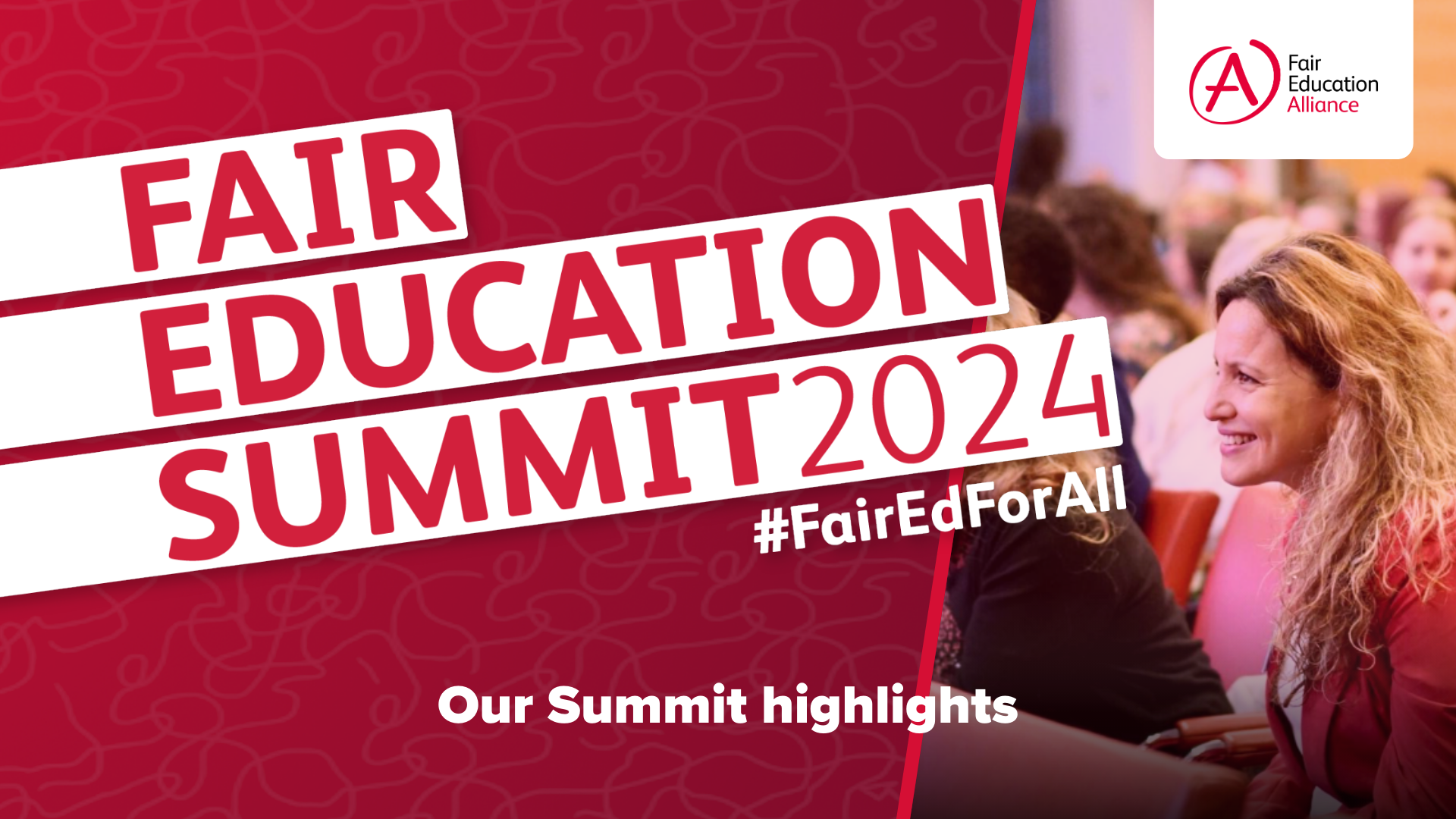Annual Report 2023-24
Celebrating a decade of collective impact
Ten years ago, the Fair Education Alliance was born from a bold idea: to take a collective, cross-sector approach to tackling inequities for children and young people. What began as a small initiative with 25 founding members has evolved into a powerful, nationwide force of 300 organisations, advocating and acting together for a fairer future for every young person in this country.
In our annual report, we reflect not just on the impact made in the last year, but through a decade of collaboration.
Ten years of collective impact
10 years ago, 25 organisations came together to found the Fair Education Alliance. Just a few months later, we published our first Report Card to document the state of educational inequality and our recommendations to close the gaps. The alliance grew, engaging diverse organisations through dialogue and action. Five years later, the alliance merged with the Teach First Innovation Unit, launched its new strategy and became an independent charity. As we have grown to almost 300 members across this decade, we have remained committed to our values of learning and honesty. You can read our reflections on how our beliefs have evolved and what we have learned about our role in our latest blog.
2023–24 at a glance
Over the past year, the education sector has faced significant challenges, including persistent pupil absence, a crisis in teacher recruitment and retention, and a rising cost of living. These issues have been especially prominent as the sector adjusts to changes following the general election and a new government in July 2024. In this context, the Fair Education Alliance and its 300 members has continued to play a key role in uniting organisations to build a fairer education system by focusing on four outcomes: amplifying a collective vision for education in England, increasing coordination across the sector, diversifying leadership and scaling solutions.
A unified collective mission, vision and action
To improve the education system for children and young people, we need to harness the collective power of our membership and coalesce around a unified message about how we achieve the change we want to see. In 2023–24, we focused on preparing for the general election, recognising that a likely new government could reshape the education landscape. To ensure our priorities were heard, we gathered insights and expertise from our members through our monthly Overarching Campaign Working Group meetings, culminating in the publication of our ‘Fair Education in 2024: Priorities for a New Government’ report. The report was widely praised for its practical recommendations and opportunities for collaboration between our members and government.
Connectivity and co-ordination across the ecosystem
We believe in fostering strong connections among education settings, charities, funders, young people and policymakers, and we do this through our Collective Action meetings, digital tools, and our Fair Education Summit. In 2023–24, we held 41 Collective Action Working Group meetings, where members supported each other with learning about policy issues, overcoming common challenges and increasing their organisation’s impact. Alongside this, over 200 organisations now use our digital tools, enabling collaboration and partnerships between organisations and schools across England. The 2024 Fair Education Summit, themed “Driving system change together,” united 289 attendees, with 91% gaining a deeper understanding of system change and its role in addressing educational inequality.
Read more on page 18 of our Annual Report →
Find out more about our collective action work →
Find out more about our Membership Tools and Ecosystem Map →
Diversity of leadership of the collective agenda
For education to become fairer, people from diverse backgrounds and experiences must have a leading voice at the table. We believe that young people’s voices are crucial to creating meaningful impact, so we centre their perspectives in our work and enable organisations across the sector to do the same. In 2023–24, we provided tailored one-to-one support to 26 organisations to enhance their youth engagement practices. We also recruited our most diverse Youth Steering Group to date, and we are proud to have some members with no previous social action experience and some members with experience of exclusion, the care system and seeking asylum. Our Youth Steering Group played a key role in shaping education policy, building strategic networks and taking on leadership roles at major events, resulting in greater youth representation in decision-making processes and a stronger platform for advocating fairer education for all.
Solutions are supported to scale systemically
With a widening gap in education outcomes between pupils from low-income households and their peers, the need for innovative solutions to address educational inequity is more urgent than ever. 2023–24 marked 10 years since the launch of our Awards programmes, where we have supported over 1,200 innovators in starting and scaling their initiatives. This year, we continued to back our 2023–25 Scaling Award winners, helping them reach over 450,000 children and young people, while also supporting our 2023–24 Innovation Award winners in building strong foundations, enabling them to impact over 37,000 children, young people and educators.
Our Members
Our members are working to support children and young people from cradle to career, and work in over 24,000 education settings – crucially, this includes 95% of schools in the most deprived income areas.
Our membership is diverse; some members are big businesses with thousands of staff and a team dedicated to education programmes, while others are small charities with deep local relationships4. Most are charities and social enterprises working directly with young people, teachers, parents or other people in the education system. The rest are schools, multi-academy trusts, membership bodies, unions, research organisations, businesses, foundations, colleges or universities, reaching a further 850 schools, 8,000 youth centres and 330 businesses.
Hover over the chart to explore the types of organisation making up the alliance.






